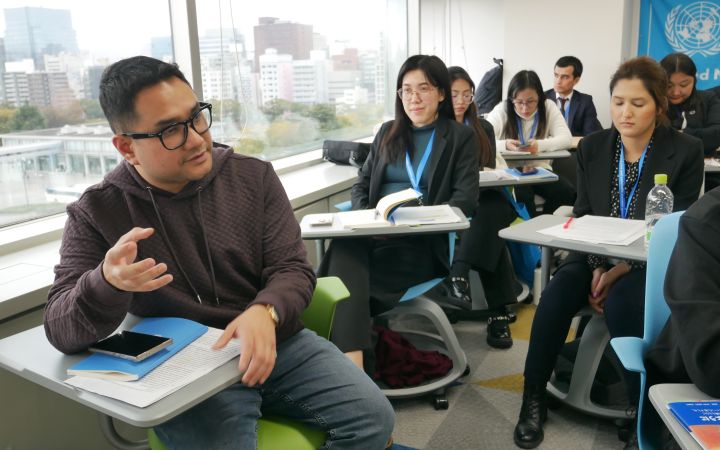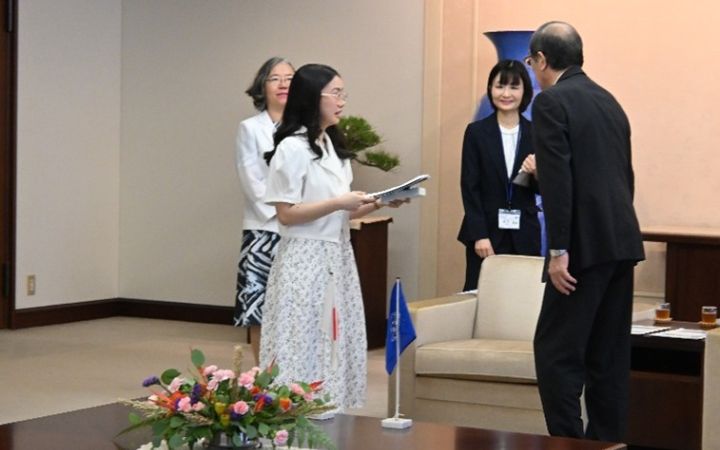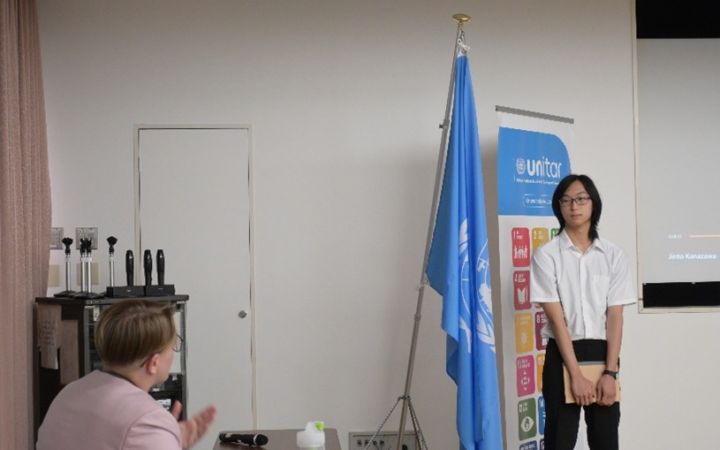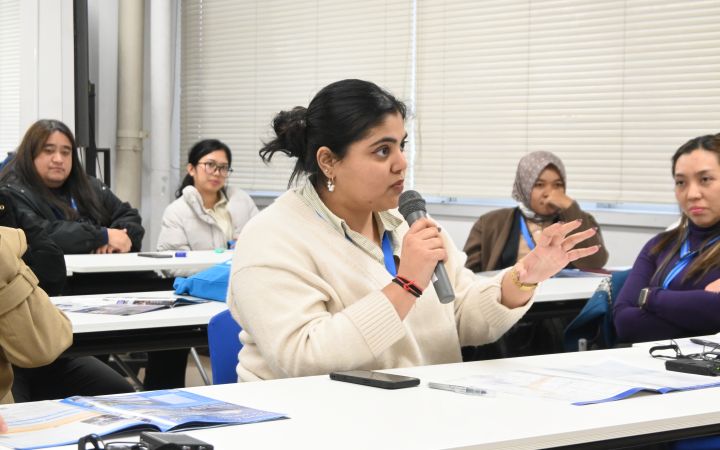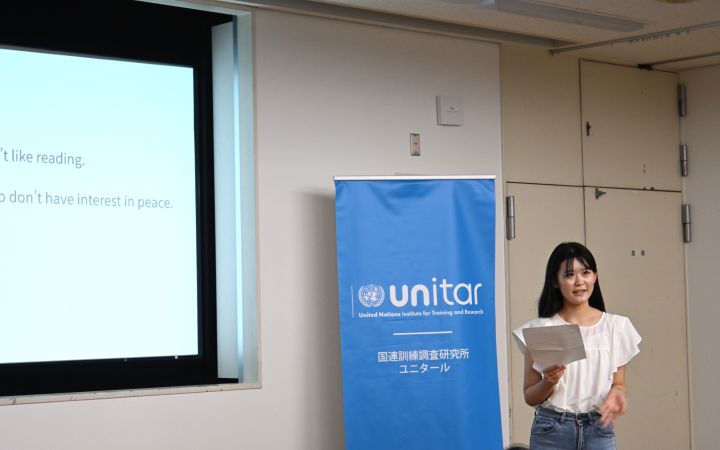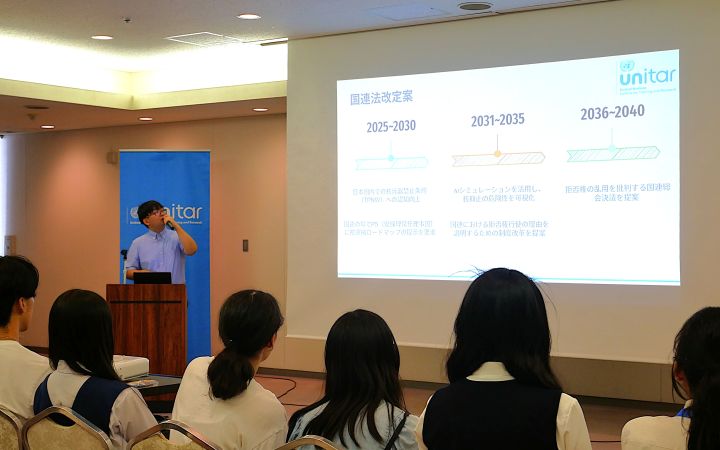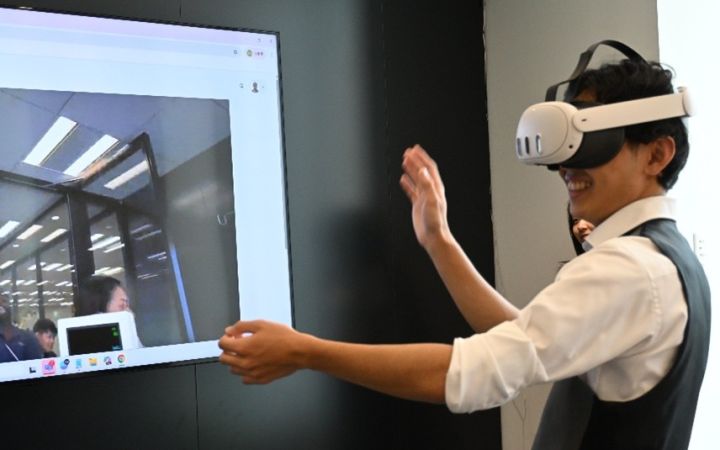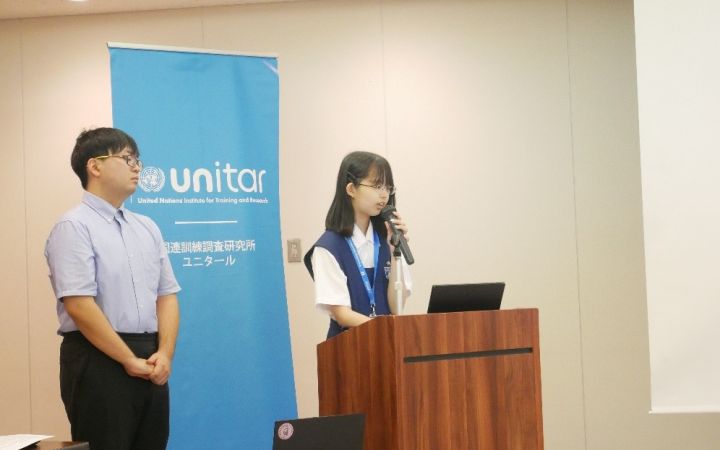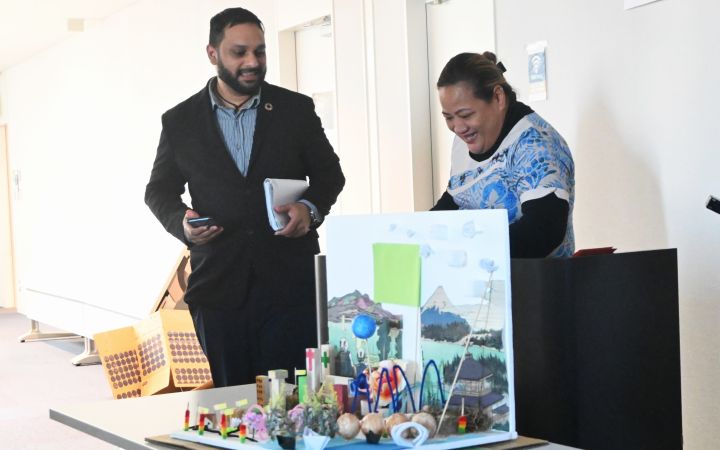Displaying 1 - 10 of 295
30 January 2026, Hiroshima, Japan - Paolo Zurita is Assistant Director for the Peace and Security Division at the Office of the United Nations and International Organizations, Philippine Department of Foreign Affairs. In this role, he is responsible for handling peace and security matters, especially nuclear non-proliferation and disarmament. He joined the UNITAR Hiroshima Nuclear Disarmament and Non-Proliferation Training in February 2025 to build his technical skills in this highly specialized field.
28 January 2026, Hiroshima, Japan - Kiana Dominique Cezar is a supply chain data analyst from the Philippines, working in a global energy and petrochemicals company, and previously volunteered with a Europe–Asia youth think tank. In 2025, she joined the United Nations Institute for Training and Research (UNITAR) programme “SDGs and Digital Futures: Changemaking Through AI and Digital Storytelling”, where she explored how AI and digital technologies can be used to tell stories that connect sustainable development, history and peacebuilding.
22 January 2026, Hiroshima, Japan - Jinto Kanazawa is a high school student in Hiroshima. In 2025, he joined the United Nations Institute for Training and Research (UNITAR) “SDGs and Digital Futures: Changemaking Through AI and Digital Storytelling” where he learned how digital tools can be used to share personal stories connected to peace and the Sustainable Development Goals (SDGs).
21 January 2026, Hiroshima, Japan - When Mriganika Singh Tanwar from India saw the flyer for UNITAR’s 2024 Sea and Human Security Training Programme, she had just completed her master’s degree in International Relations at Nanyang Technological University, Singapore. At the time, her focus was on international security and strategic technologies. “I found it … fascinating how [this] diverse region – tied by culture, economy, geography and demography – is also connected by two sets of common challenges: sea and human security,” she says.
14 January 2026, Hiroshima, Japan - Hiroshima high school student Nodoka Dekihara learned from an early age about the history of the atomic bombing and peace. As her interest in the wider world deepened through studying abroad and international exchanges, she joined a UNITAR digital storytelling training programme to explore new possibilities for communicating messages of peace.
12 January 2026, Hiroshima, Japan – “Simply advocating for peace and taking action for peace are not the same”, says Yuya Morishita, a third-year high school student in Hiroshima. In 2025, Yuya joined 24 other students in the UNITAR Hiroshima Youth Ambassador Programme.
30 December 2025, Hiroshima, Japan – Takahiro Masuda is a university student in Hiroshima majoring in bioinformatics, where he studies the intersection of healthcare and information technology. Raised in Nagasaki as a third-generation atomic bomb survivor, Takahiro joined the UNITAR SDGs and Digital Futures: Changemaking Through AI/Digital Storytelling training programme, seeking new ways to convey messages of peace through digital technology.
26 December 2025, Hiroshima, Japan – Reina Yoshida, a second-year high-school student, is shaping her path, guided by a strong sense of justice and a desire to contribute to peace. Through the 2025 UNITAR Hiroshima Youth Ambassador Programme, she deepened her understanding of peacebuilding and explored creative expression to convey lessons of history to future generations.
Promoting and protecting Human Rights is a continuous practice that shapes how institutions serve people and uphold dignity, inclusion, and justice for all. To strengthen the capacity of professionals to fulfill this responsibility in an increasingly complex landscape, the Saudi Human Rights Commission, UNITAR, and Majmaah University collaborated to implement the Expert in Human Rights Programme in the Kingdom of Saudi Arabia. It deepened understandings of Human Rights and empowered participants to translate knowledge into effective practice.
8 December 2025, Hiroshima, Japan - When Mohseen Riaz-Ud-Dean was a child, Cyclone Kina swept across Fiji and flooded Mohseen’s home. “My house was underwater”, he recalls. “We had to relocate … [take] all the belongings we had with us to a higher level.” The experience taught him what it means to grow up in a vulnerable island nation and the importance of preparedness.


